Today, OpenSim development moves along at an uneven pace, with an estimated 1,200 bugs that need to be fixed before OpenSim can get to a stable, reliable version 1.0 release and get out of “alpha.”
Development is mainly driven by three groups — large organizations like Intel who have paid staff working on research projects such as the Distributed Scene Graph and Bullet physics; grid managers like the folks behind Kitely, Avination, and MOSES, who fix bugs that get in their way and add features that they need and donate the code back to the community; and individual volunteers working on projects of most interest to them.
One problem is a lack of funding for paid development, to have people work on the not-so-sexy but critical issues that OpenSim users need fixing.
OpenSim core developer Justin Clark-Casey hopes to change that, with a new crowdfunding approach.

Clark-Casey is president of the non-profit Overte Foundation which oversees OpenSim licensing issues. He is also personally responsible for more commits to the code base than any other developer — twice as many this year as the next most productive, Intel’s Robert Adams. Clark-Casey is unaffiliated with any particular grid or hosting company.
He does do consulting work, however, for large corporate clients, and this consulting work reduces the time he can spend on core OpenSim issues.
Donations to his GITTip funding page can allow him to dedicate more of his resources on OpenSim work, including coding as well as managing contributions from other people. He would also use the funds to pay for servers or other necessary tools and equipment.
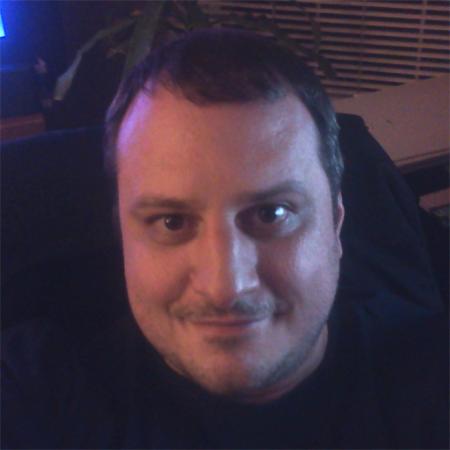
“I am very much in support of this idea,” said former OSgrid president Michael Cerquoni, also known as Nebadon Izumi in-world. Cerquoni is currently a board member of the Overte Foundation, and an OpenSim core developer. He is also the founder of Oni Kenkon Creations, a virtual worlds design and consulting company. “I have been trying to encourage others to take a look and also to help contribute to Justin if they can. I really hope this effort is successful and that it helps to attract more code, good fixes and hopefully is incentive that attracts more people to get involved in this project.”
Commercial firms pitch in
The commercial grids and vendors building businesses on top of the OpenSim framework exist only because of the wealth of code and content contributed by the community. Many have already been contributing, both in money and in code fixes. Clark-Casey’s GitTip page makes financial support a bit easier.
Kitely, the on-demand, cloud-based OpenSim grid, has committed to donating more than $1,000 over the course of this coming year to fund OpenSim development, and has put up a GitTip page tracking its progress.
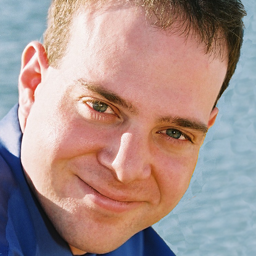
“We posted about this and encouraged others to do so as well in our Twitter, Facebook and Google+ feeds,” Kitely CEO Ilan Tochner told Hypergrid Business.
Kitely has also donated code to the OpenSim project, with 59 commits by CTO Oren Hurvitz with numerous bug fixes as well much-needed code that allows grids to filter OAR exports so that customers can get backups of their regions without infringing on creator copyrights.
“We believe in an open metaverse that is based on open-source technology that is accessible to everyone,” said Tochner.
Avination, a closed commercial grid, has put up a donation sign on its welcome region.
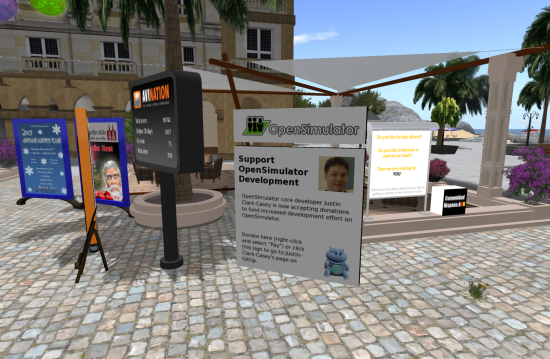
“I’m all in favor of getting some funding for a coding push,” said Avination founder Melanie Thielker.
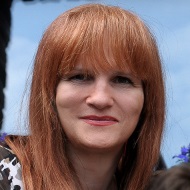
Thielker is also the CEO of OpenSim hosting company 3D Hosting and an OpenSim core developer with over 2,400 commits to the code base.
Avination has been doing more than its share in helping improve OpenSim functionality, most recently with code to allow vehicles to cross region borders.
Another hosting company, Zetamex, pledged to make regular contributions as well.
“We will contribute 10 percent of all Zetamex monthly sales,” company CEO Timothy Rogers told Hypergrid Business.
YourSimSpot, a small commercial social grid and OpenSim hosting company, has added a call for donations to its home page.
DreamNation, a smaller role-playing grid, is also stepping up to help support OpenSim development.
“We have been supporting the OpenSim grid development team through regular donations and offers of improvements we have made since we began,” said grid founder Waki Janus. “We try to put about 10 percent of our total income into supporting OpenSim developers.”
Now that Clark-Casey set up the GitTip page, DreamNation will be making regular weekly donation, Janus told Hypergrid Business. “And we are asking all our members to consider doing the same.”
3rd Rock Grid discussed how to support OpenSim development at its most recent owners meeting, said grid administrator Tara Dockey, also known as Thoria Millgrove in-world.
“While we’ve not come to any specific conclusions yet, we most assuredly will do something to support Justin, and to encourage our community to do so,” Dockey told Hypergrid Business.
Donating directly to OpenSim
Some members of the OpenSim community would prefer to see their donations to go a non-profit organization, so that the donations would be tax deductible. This is especially true for large enterprise users of the platform.
However, there are practical difficulties in setting that up.
“I fully understand why people would want a ‘Donate to OpenSimulator’ option rather than a ‘Donate to JCC’ one,” Clark-Casey told Hypergrid Business.
But funneling donations through a non-profit organization would require significant organizational complexity, including a board that meets regularly to oversee the collection and distribution of money, additional bookkeeping and reporting requirements, and a politically-astute team to handle the issues that arise when some developers or projects are funded instead of others.
“All this is a lot of complexity which takes away from actually spending time on doing stuff,” he said.
It’s not an insurmountable problem, he added. “But I don’t have the skills or energy for it.”
The OpenSim community isn’t big enough — yet, anyway — to support a professional manager or management staff to run the foundation.
“Asking for funding personally is not ideal but it’s also not subject to these problems,” he said.
MOSES to add four developers to OpenSim project
One of the biggest enterprise users of OpenSim today is the U.S. Army Simulation & Training Technology Center, which runs the MOSES project.

“I’ve been doing a deep dive into the code, with Mic Bowman and Justin Clark-Casey as consultants, and it turns out that the code is simply immature,” said Douglas Maxwell, the center’s science and technology manager for virtual world strategic applications. “There are about 1,200 serious bugs that need to be fixed before we can get to version 1.0, and it needs to be refactored and documented.”
Currently, OpenSim is on an “alpha” 0.7.6 release.
Refactoring will include removing parts of the code that do the same thing as another part of the code that’s already in there, he explained. “There have been so many hands in the code that there are some redundancies,” he said.
In addition, parts of the code are still “single-threaded.” This means that it only uses one processor core at a time.
“Today you can buy a $500 computer with eight cores, and you’re not using the potential of your system,” he said. “It needs to be multi-threaded.”
Maxwell estimated that it would take 24 man-years of labor to bring OpenSim up to 1.0, being conservative, and eight man-years on the optimistic side since many of the 1,200 bugs would probably be taken care of with the refactoring.
Maxwell said that he uses the OpenSim platform for soldier experimentation, and needs it to be as stable as possible.
“I am putting real soldiers inside my grid,” he said. “So it is absolutely essential that the grids I have them log into are bulletproof, no pun intended.”
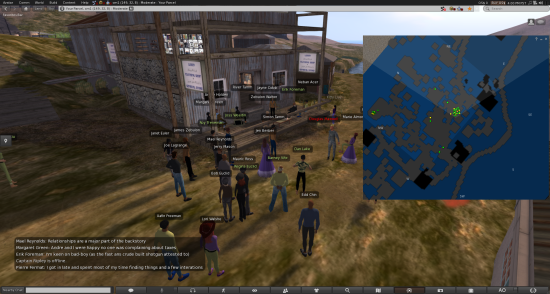
Maxwell is a proponent of a more rigorous approach to OpenSim development management and funding.
“I believe that a foundation should be set up and fees paid to the nonprofit to support someone to be a professional, full-time maintainer of the code, whether an individual person or a council of people,” he said. “It’s just as easy for me to send the money to a professional engineering firm as to a foundation to pay for it, and I’d much rather get someone experienced with the code.”
He suggested setting up the existing Overte Foundation — which currently only handles licensing issues — to accept donations.
“That would be the healthiest approach for the community as a whole,” he said.
Once OpenSim is stable, and at a 1.0 release, it will become much more attractive to large enterprises.
“I have companies coming to me all the time looking to replicate what we are doing,” he said. “But I see tremendous opportunities lost because the companies have just given up. A couple of multi-million dollar projects over the past year have given up on OpenSim and moved to Unity, both training-related projects in health care. They would have been perfect candidates for OpenSimulator had it been reliable.”
Maxwell said that he’s aware of competing products with price tags that run into the six and seven figures that aren’t as feature rich as OpenSim.
“The bad news is that OpenSimulator can’t compete with those products on a reliability basis,” he said. “You almost have to be a computer scientist to configure it to run properly.”
Meanwhile, Maxwell said that he plans to hire four developers to start with, and put them to work documenting the code and finding out what needs to be refactored, then, if he gets the funding, bring in more staff to help get OpenSim to a 1.0 release.
Maxwell said that he will be donating the documentation and the code fixes back to the OpenSim community.
“But it is cumbersome for me to do so in a timely fashion,” he said. “A non-profit could do it in a much more agile manner.”
Right now, for example, Maxwell is in the process of getting an updated Simian front end system donated back to the community.
- OSgrid back online after extended maintenance - April 16, 2025
- Analysts predict drop in headset sales this year - March 25, 2025
- OSgrid enters immediate long-term maintenance - March 5, 2025
